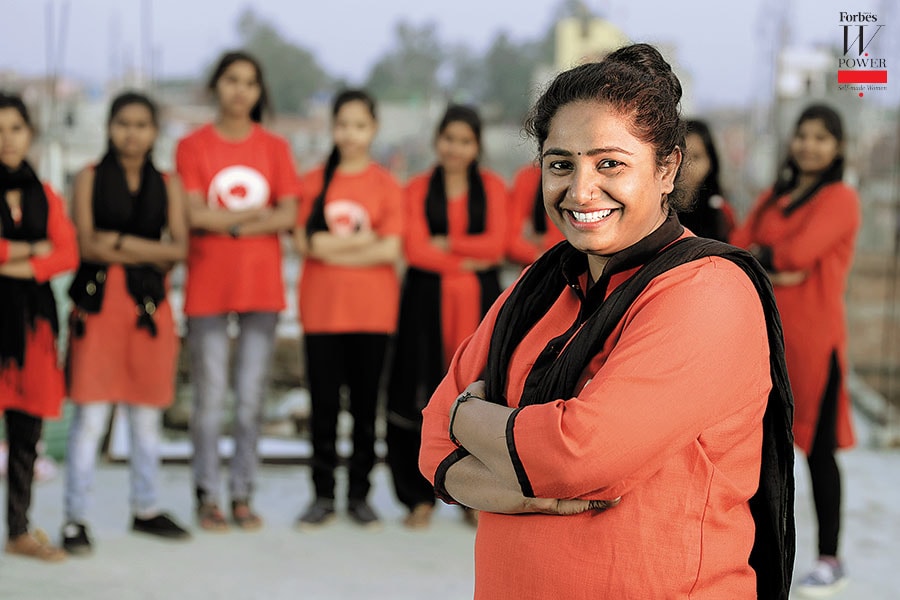
Usha Vishwakarma: Teaching women self defence, never backing down
Usha Vishwakarma's Red Brigade Lucknow develops techniques to help women defend themselves from harassment or assault
 Image: Vikas Babu for Forbes India
Image: Vikas Babu for Forbes India
Usha Vishwakarma knows it is an uphill task for survivors of harassment or assault to regain their self-confidence and bring their life back to normalcy. The founder of Red Brigade Lucknow, a survivor of attempted rape herself, has devised indigenous techniques to help women defend themselves when under attack. Her non-profit has trained over 1.57 lakh girls in India since 2011, and the activist is on a mission to reach out to as many girls as she can in the coming years.
The 33-year-old believes that while a lot of women choose not to report harassment or assault for various reasons, they need to be able to defend themselves if such incidents occur. She herself had chosen to remain silent fearing that her family would impose restrictions on her.
At the time of her assault, Vishwakarma, then 18, had just completed her intermediate education from a government school in Madiyaon district in Lucknow, and was working with a non-profit to teach children in the nearby slum areas. The person who attacked her was a colleague.
“He forcefully grabbed me, held me down and tried to rip off my clothes. I was in shock and was shivering. But I managed to kick him, slap him twice and escape. I used to be a strong woman but this incident broke my self-confidence,” she says.
She had always grappled with her choice of remaining silent, so when an 11-year-old girl who she taught in the slums told her that she had been molested by her uncle, she was triggered to take action. She realised education meant nothing if one’s personal safety was not guaranteed, and decided to empower girls through self-defence and counselling.
Data from the National Crime Records Bureau (NCRB) indicates that 32,559 rape cases were reported in India in 2017, and in 93.1 percent cases the accused were known to the victims. In order to embolden young girls and women physically and mentally, Vishwakarma organised awareness campaigns, street plays and workshops in schools, colleges and other public spaces. She works with girls over 12 and also helps women with legal assistance if they are ready to file a case.
(This story appears in the 30 November, -0001 issue of Forbes India. To visit our Archives, click here.)







